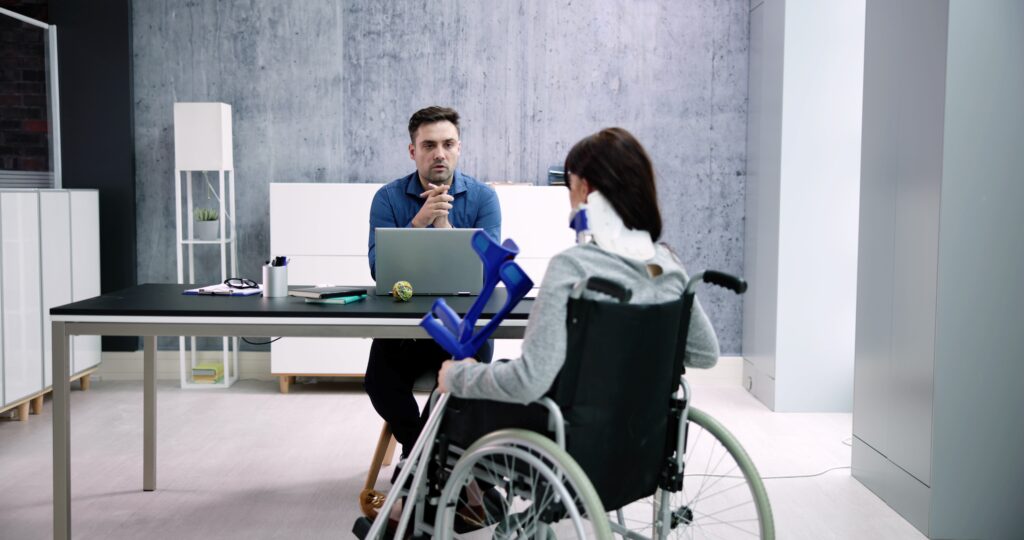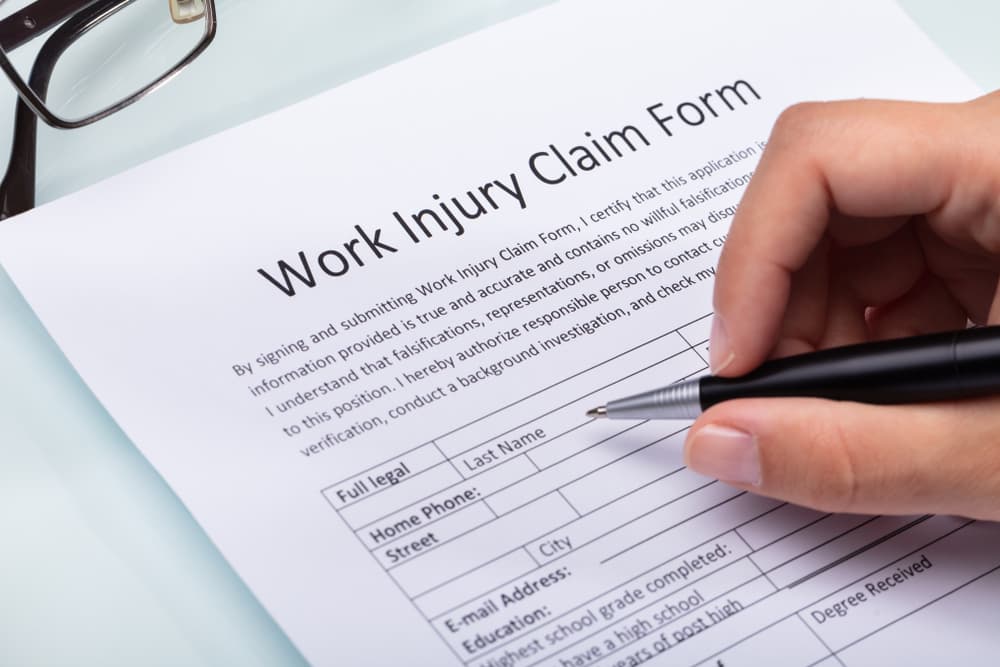Have you ever wondered what happens if you get hurt at work? What if you can't do your job because of an injury that happened while you were working? This is where workers' compensation comes in. Workers' comp is a type of insurance employers have to help protect employees if they get injured or sick because of their jobs.
If you suffer injuries, need medical treatment, or have to miss work, never hesitate to discuss the workers’ comp process and possible benefits with an experienced Aiken workers compensation attorney near you.
What is Workers' Compensation?
Workers' compensation is a form of insurance that benefits employees who get injured or become ill due to their job. This means that if something happens to you while you're at work, you can get help with things like:
Medical Expenses

One of the most important benefits of workers' comp is coverage for your medical expenses. When you get hurt or become ill at work, you shouldn't have to worry about how you're going to pay for your treatment. Workers' comp takes care of all the costs related to your injury or illness, including:
- Doctor visits: Whether you need to see your primary care physician or a specific medical focus, workers' comp will cover the cost of your appointments.
- Hospital stays: If your injury or illness is severe enough to require hospitalization, workers' comp will pay for your room, meals, and necessary medical procedures.
- Medications: Workers' comp will cover any prescription or over-the-counter medicines you need to treat your condition.
- Medical equipment: If you need crutches, a wheelchair, or any other medical equipment to aid your recovery, workers' comp will provide them.
- Transportation: Workers' comp can also cover those costs if you need to travel to and from your medical appointments.
It's important to remember that to receive these benefits, you need to follow your employer's guidelines for seeking medical treatment. They may require you to see a specific doctor or visit a clinic or hospital. Make sure you understand the rules and follow them to ensure your expenses are covered.
Lost Income
Another benefit of workers' comp is compensation for lost income. If your injury or illness prevents you from working temporarily or permanently, you may be eligible to receive a portion of your regular income. This is known as disability benefits, and there are two main types:
- Temporary disability benefits: If you cannot work for a short period while you recover, you can receive temporary disability benefits. These payments typically constitute a percentage of your regular income and can cover your living expenses until you can return to work.
- Permanent disability benefits: If your injury or illness is so severe that you can't return to your previous job or any other type of work, you may be eligible for permanent disability benefits. These payments provide long-term financial support and depend on the severity of your disability.
It's important to note that the amount and duration of your disability benefits will depend on your specific situation and the laws in your state. A workers' comp lawyer can ensure you understand your rights and receive the maximum benefits.
Rehabilitation
Returning to work after an injury or illness may require more than medical treatment. You may require specialized therapy, training, or equipment to aid in your recovery and regain your abilities. That's where rehabilitation benefits come in.

Workers' comp can cover a wide range of rehabilitation services, including:
- Physical therapy: If your injury has affected your mobility or strength, physical therapy can assist in regaining function and reducing pain.
- Occupational therapy: If your injury or illness has made it difficult for you to perform your duties, it can teach you new ways to do your tasks or aid you in adapting to new limitations.
- Vocational rehabilitation: If your injury or illness prevents you from returning to your previous job, vocational rehabilitation can aid in learning new skills or finding a new job that accommodates your abilities.
- Assistive devices: If you require special equipment, such as a prosthetic limb or a modified vehicle, to aid in your work or live independently, workers' comp can cover those costs.
The goal of rehabilitation is to facilitate your fullest possible recovery and ensure your safe and timely return to work. Your doctor and rehabilitation team will work with you to create a personalized plan that meets your needs and helps you achieve your goals.
Disability Benefits
In addition to temporary and permanent disability benefits, which replace income, workers' comp offers other types of disability benefits to assist with coping with the long-term effects of your injury or illness. These may include:
- Vocational disability benefits: If your injury or illness prevents you from returning to your previous job but allows you to work in a different capacity, vocational disability benefits can aid you in finding a new job or training for a new career. This may involve working with a vocational counselor, attending job fairs, or enrolling in educational programs.
- Supplemental job displacement benefits: If your employer doesn't offer you a suitable alternative job after you've reached maximum medical improvement, you may be eligible for supplemental job displacement benefits. These benefits provide a voucher that you can utilize for education, training, or other job-related expenses to aid in finding new employment.
- Death benefits: If a worker dies as a result of a work-related injury or illness, their surviving family members may be eligible for death benefits. These include burial expenses, income replacement, and ongoing support for dependent children or spouses.
How Does Workers' Comp Work in South Carolina?
Now that you know what workers' comp is, let's discuss how it works. Here's a step-by-step guide:
Step 1: Report the injury or illness to your employer
You must inform your employer when you get hurt or realize you're sick because of your job. They should have a special form for you to complete: an incident report or injury report. This is important because it creates a record of what happened and when.
Step 2: Get medical treatment
Your health is the most important thing, so make sure you get the medical care you need. Your employer should inform you about the doctors or clinics you can visit under their workers' comp insurance. Keep track of all your medical appointments, treatments, and expenses.
Step 3: File a workers' comp claim
To get workers' comp benefits, you need to file a claim. This usually involves filling out paperwork and documenting your injury or illness. Your employer should facilitate this process, but you can contact your state's workers' comp board for assistance if they don't.
Step 4: Wait for your claim to be approved
After you file your claim, the workers' comp insurance company will review it to ensure everything is in order. They might ask for additional information or documentation. If your claim is approved, you'll start receiving benefits. If your claim faces rejection, you can appeal the decision.
Step 5: Return to work when you're ready
Workers' comp aims to facilitate your recovery and enable your swift return to work. Your doctor will let you know when it's safe for you to return to your job. If you need accommodations or light-duty work, your employer should work with you to make that happen.
Why is Workers' Comp Important?
Workers' compensation is vital to the modern workplace, providing protections and benefits for employees and employers.
For workers, it serves as a safety net in the event of unexpected injuries or illnesses that occur on the job. Imagine the peace of mind that comes with knowing that if you were to suffer a work-related accident or develop an occupational disease, you would not have to worry about losing your income or facing insurmountable medical bills. Workers' comp ensures that you can focus on your recovery without the added stress of financial hardship, providing a portion of your regular income to enable you to make ends meet while you heal.
Also, workers' comp offers the reassurance that you can take the necessary time off to recuperate without fear of losing your job. This is particularly important for those requiring extensive medical treatment or rehabilitation, as it allows them to prioritize their health and well-being without jeopardizing their employment status. By providing this level of protection, workers' comp empowers employees to make decisions that are in their best interests, both physically and mentally, without choosing between their recovery and their livelihood.

However, workers' compensation isn't just beneficial for employees; it also protects employers from potential legal and financial repercussions. Without workers' comp, an employee who suffers a work-related injury or illness can sue their employer for negligence or other perceived wrongdoings. Such lawsuits can be incredibly costly for companies, not only in monetary damages but also reputational harm. The negative publicity surrounding a workplace injury lawsuit can erode public trust in a company, damaging its brand image and making it more difficult to attract and retain top talent.
By carrying workers' comp insurance, however, employers can mitigate these risks and ensure that their employees are adequately cared for in the event of a work-related incident. This demonstrates a company's commitment to its workforce's well-being but also helps foster a culture of trust and loyalty among employees. When workers feel their employer supports them and prioritizes their safety and security, they are more likely to engage, be productive, and commit to their jobs.
Furthermore, workers' compensation can help create a safer and more secure work environment. Workers' comp reduces the overall incidence of work-related accidents and illnesses by providing financial incentives for employers to prioritize workplace safety and invest in injury prevention initiatives. This, in turn, can lead to lower insurance premiums for employers and a more stable and productive workforce.
In today's fast-paced and ever-changing business landscape, we cannot overstate the importance of workers' compensation. It provides a lifeline for employees who may find themselves facing unexpected challenges due to their job duties while also offering employers a means of protecting their businesses and their bottom lines. By ensuring everyone has access to the support and resources they need to navigate the complexities of work-related injuries and illnesses, workers' comp helps create a more equitable, secure, and sustainable workforce for all.
Examples of Workers' Comp in Action
To illustrate how workers' comp works, let's examine a few examples:
Example 1: Construction worker falls from a ladder
A construction worker has been on the job for five years. One day, while working on a new building, they fell off a ladder and broke their leg. They rush to the hospital, undergo surgery, and learn they'll need several weeks of physical therapy before they can return to work.
Their employer has workers' comp insurance, so they don't have to worry about paying their medical bills or losing their income while they recover. They file a claim, which is approved, and they start receiving benefits to cover their expenses. After a few months of rest and therapy, they can return to work without long-term effects.
Example 2: Office worker develops carpal tunnel syndrome

An administrative assistant who spends most of their day typing on a computer. Over time, they notice pain and numbness in their wrists and hands. They go to the doctor and are diagnosed with carpal tunnel syndrome, a repetitive stress injury caused by their job duties.
The employer has workers' comp insurance, so they filed a claim to get coverage for their medical treatment and time off work. The insurance company approves their claim, and they can get the surgery and therapy they need to recover. The employer also works with them to make ergonomic changes to their workstation to prevent future injuries.
Example 3: Nurse contracts a contagious virus
A nurse who works in a hospital's contagious virus unit. Despite taking all the necessary precautions, they end up contracting the virus from a patient. They fall seriously ill and require hospitalization for several weeks.
Because their illness is work-related, they are eligible for workers' comp benefits. The employer's insurance covers their medical expenses and provides them with income replacement while they cannot work. Once they recover, they can return to their job with no financial hardship.
What to Do if You Need Help with a South Carolina Workers' Comp Claim
Going through the workers' comp system can be complicated, especially if you're dealing with a serious injury or illness. If you find yourself in a situation where you need help, don't hesitate to reach out to a workers' compensation lawyer. These legal professionals focus on helping employees get the benefits they deserve. A workers' comp attorney can guide you through:
- Understand your rights and options under the law.
- File a claim and gather the necessary documentation.
- Appeal a denied claim or negotiate a settlement.
- Represent you in court if necessary.
Don't try to handle a workers' comp case on your own. If you've suffered an injury or become ill because of your job, contact a qualified workers' compensation lawyer today to get the help and support you need. They can guide you through the process and fight for your rights every step of the way.

Contact a South Carolina Workers' Compensation Attorney
Don't delay seeking assistance if you've suffered an injury at work. Contact a skilled workers' compensation lawyer today to learn more about your rights and options. With their experience and support, you can get your deserved benefits and focus on your recovery. Schedule a consultation now and take the first step towards protecting yourself and your future.








